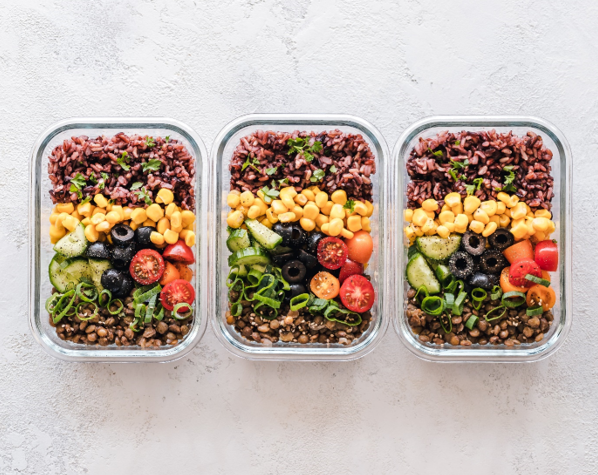Following a healthy dietary regime requires a fair amount of discipline and patience; if you lack either of those, chances are you will end up eating something not-so-healthy in the spur of the moment.
That said, having a highly indulgent meal once in a while is not that big a deal; in fact, it’s a healthy way to satisfy all the unhealthy cravings. But if you make a habit of gobbling down junk food because you didn’t plan your meals ahead of time, your physical and mental wellbeing will suffer.
Therefore, if you wish to stay fit and lead a life packed with nourishment, you should put in the effort and time to prep your meals.
Meal planning can be pretty tedious, to say the least, especially for those who are just starting their fitness journey. However, with a little bit of structure, you can make your lot easier and much healthier. And to help you with that, here are five meal planning strategies that will make said task a piece of cake for you.
Start With Some Preliminary Action
Whether you are a fitness newbie or a long-time fitness freak, you need to do some groundwork before getting to the actual planning. What do we mean by that, you ask? It’s simple, prepare a timetable first to figure out the frequency of your planning- simply put, decide if you want to make a plan for a week, two weeks, or a month. Doing so is essential as it will help when buying supplies.
Meal planning generally consists of whole foods, and they are perishable, which means you can’t stockpile them; otherwise, they’ll turn stale or, worse, rot in your pantry. Therefore, it’s important to buy a limited stock of items.
Do Your Groceries
Once you know when and how often you will be packing your meals, you can move on to stocking up your pantry. Let’s say you decide to go with a weekly plan; then, you should only buy items that will last you a week.
Make a list of all the staples and non-staples you need before setting out to go to the grocery store. We’d recommend you get a wide range of ingredients belonging to all food groups; be sure to have enough protein, vitamins, good fats, and healthy carbs in your inventory.
Look Up Recipes
Despite being good for the human body, healthy, nutrient-dense foods are hard to come by, especially when compared with the endless supply of processed food available on the market. This means you need to cook for yourself more often than you’d like. And that also means you must know a whole lot of healthy yet tasty recipes to have a variety of tastes before yourself when you sit to eat.
But obviously, not everyone is a Michelin star culinary expert, so you need to have a recipe journal to help you whip up nutritious dishes that are restaurant quality.
Prepare your personal cookbook and jot down as many recipes in it as you can for the days when you don’t want to eat the same old salad! Oh, and believe it or not, you will find an exhaustive list of nutrient-dense foods on the internet!
Buy Good Quality Containers
It goes without saying that you need to have prime-quality jars and boxes to store your food in; otherwise, it will turn soggy and sour. So, if you don’t want to eat inedible stews soups or salads, invest in top-grade kitchenware.
Make Use of the Weekends
Who doesn’t love to laze around on the weekends? We know we do! However, if you wish to have a foolproof meal plan in place, you need to use your Saturdays and Sundays smartly to prepare the dishes and store them in the fridge. If you don’t do this, you might not get time to cook during the week and most likely have to grab a bite from an eatery.
So don’t waste your weekends being a couch potato and get cookin’.
There is no denying that meal planning is complex and can even get monotonous, but you can manage it just fine if you do things in a timely manner!


